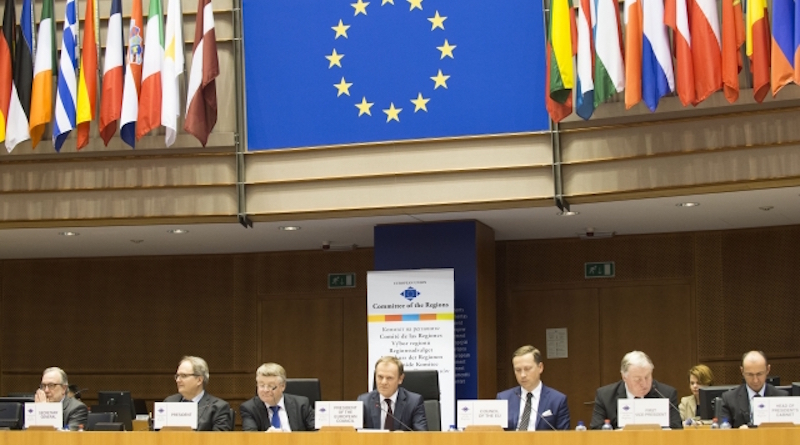Europe’s regions call for investments – not cuts – in education
Increasing resources and cooperation for youth employment, entrepreneurship and integration policies should not be seen as expenditure but as investment in the future, the President of the European Committee of the Regions Markku Markkula emphasised today [Feb-11]. In a debate with Tibor Navracsics, Commissioner for Education, Culture, Youth and Sport, Europe’s local and regional leaders also called for a renewed education policy which promotes social inclusion, innovation and excellence in all regions of Europe.
“We are looking forward to the European Commission’s proposals for a New Skills Agenda for Europe, expected in May”, President Markku Markkula said: “We believe the focus should be on the renewed efforts to modernise European education systems, to achieve excellence and stimulate innovation in education and training. It is also crucial to embed digital technologies and develop digital skills to face what is called the Digital Turn.”
Commissioner Navracsics said: “Europe suffers from underinvestment in education. We must reverse this trend, to make our economy more competitive and to give everyone a real chance in life. It is in regions and cities where we will need to tackle exclusion and radicalisation. And I want regional leaders, mayors, heads of local NGOs, schools and sport clubs to know that the EU cares and can support them in many ways. We can help them make a difference on the ground.”
In its plenary session today, the CoR adopted an opinion on the implementation of the renewed framework for European cooperation in the youth field. It calls for more accessible information on the results of youth policy, “including data on sub-national level, so as to better determine the gaps in which the EU might help through its structural funds, especially in sparsely populated rural areas”, says rapporteur Csaba Borboly (RO/EPP). The President of Harghita County Council regrets that budgetary cuts in several Member States have affected socio-educational services at a critical moment. “With the current, unprecedented migration flows to Europe, these issues are even more relevant. Local and regional authorities should be provided with adequate, directly accessible financial resources to allow the integration of young people from migrant backgrounds”, Mr Borboly stresses.
In the field of education, the opinion suggests a “minimum qualifications and skills guarantee” for all young people in Europe, as well as a basic package which could include access to high speed internet, language learning, career guidance and mentoring, funding opportunities for studies and promoting the preparation for a first job. It also highlights the importance of matching skills with employers’ needs and promoting professional training initiatives, tailored to regional specificities and specific skills.




